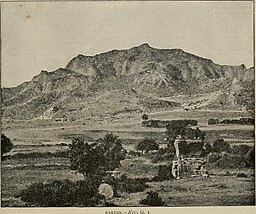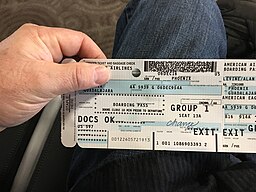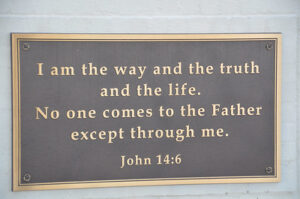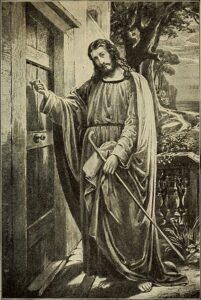Our look at the second chapter of the book of Revelation encompassed four of the seven letters that Jesus addressed to various churches that were active during the latter part of the first century. Revelation 3:1 now begins the fifth of those messages, and one that marks a departure from the preceding letters in this series. Jesus directed this fifth letter to the church in Sardis, a city that was located approximately thirty miles (48 km) south of Thyatira, the site of the church community that received His previous message.
 At one time, Sardis was reported to be one of the more prominent cities of the ancient world. The city was strategically positioned on an elevated ridge that was surrounded by mountainous cliffs that presented a formidable obstacle to any military force that might try to mount an invasion. Of course, “difficult to invade” is not the same as “impossible to invade,” but we’ll address that distinction in greater detail shortly.
At one time, Sardis was reported to be one of the more prominent cities of the ancient world. The city was strategically positioned on an elevated ridge that was surrounded by mountainous cliffs that presented a formidable obstacle to any military force that might try to mount an invasion. Of course, “difficult to invade” is not the same as “impossible to invade,” but we’ll address that distinction in greater detail shortly.
Sardis had once been a city of wealth, affluence, and commercial activity. However, that all changed in a single night in the year A.D. 17 when a severe earthquake destroyed large portions of the city. The destructive force of that earthquake was so immense that one ancient writer later stated that it caused vast mountains to collapse and human beings to be swallowed up by the earth. (1) Although the Roman government was said to have funded a substantial reconstruction effort, it appears that the city of Sardis never fully recovered from the devastating impact of that earthquake.
So what did that mean for the church in this city? Well, it meant that the members of the Christian community in Sardis were living in a place that had once been a thriving metropolitan area at the turn of the first century. But now with the dawn of the second century rapidly approaching, it was little more than a shadow of its former self.
This historical context adds meaning and significance to Jesus’ opening remarks in this letter…
“And to the angel of the church in Sardis write, ‘These things says He who has the seven Spirits of God and the seven stars: ‘I know your works, that you have a name that you are alive, but you are dead’” (Revelation 3:1).
One of the distinguishing features of Jesus’ message to the Christians at Sardis lies not in what He says, but in what He omits. We consider what Jesus left unsaid in His letter to the church at Sardis in our next study.
Image Attribution: Sardis – Rev. III, 1 Internet Archive Book Images, No restrictions, via Wikimedia Commons
(1) The Annals of Tacitus. (n.d.). [2.47] https://www.earlychristianwritings.com/text/annals.html
“And to the angel of the church in Sardis write: ‘The words of him who has the seven spirits of God and the seven stars. “‘I know your works. You have the reputation of being alive, but you are dead” (Revelation 3:1 ESV).
Unlike Jesus’ other letters to the churches of Revelation chapters two and three, His message to the church at Sardis is noteworthy for what it doesn’t say.
In each of his previous letters, Jesus acknowledged at least one commendable activity in every church. For instance, Jesus praised the Ephesian church for it’s patience, labor, and perseverance. He commended the church at Smyrna for remaining strong in the midst of tribulation. Jesus recognized the church at Pergamum for it’s faithfulness, even when one of their members had been martyred. Finally, Jesus voiced His approval of the church at Thyatira in recognition of their love, faith, service, patience, and good works
But unlike those churches, Jesus had no message of approval for the Christian community in Sardis. Jesus’ opening remarks from Revelation 3:1 point to that unfortunate reality: “Everyone may think you are alive, but you are dead” (CEV). If the church at Sardis were active today, it would probably be known as an active, dynamic congregation with a schedule full of various activities. To use Jesus’ terminology, it would likely be the kind of church that maintained a “reputation of being alive” (NIV).
This portion of Scripture thus holds an important message for modern-day church fellowships. Jesus’ letter to church at Sardis tells us that a church may be engaged in a range of activities that appear to serve God, yet still be far from His desired path. In light of this, we should seek out church congregations where the leaders focus on fulfilling the commission given to us in Ephesians 4:12…
“Their responsibility is to equip God’s people to do his work and build up the church, the body of Christ” (NLT).
 A key attribute of a good church lies in its capacity to prepare its members to undertake the work God has called them to do. On the other hand, a church with a good reputation that fails to help its members understand and apply God’s Word will likely fail in it’s mission to help them fulfill God’s will in their lives.
A key attribute of a good church lies in its capacity to prepare its members to undertake the work God has called them to do. On the other hand, a church with a good reputation that fails to help its members understand and apply God’s Word will likely fail in it’s mission to help them fulfill God’s will in their lives.
Finally, this portion of Jesus’ message to the church at Sardis reminds us that Jesus saw these individuals for who they were, and not what they appeared to be. The same holds true of everyone today, especially those who self-identify as members of the Christian community.
Image Attribution: Ryk Neethling Open Bible, CC BY 2.0
“Be watchful, and strengthen the things which remain, that are ready to die, for I have not found your works perfect before God. Remember therefore how you have received and heard; hold fast and repent. Therefore if you will not watch, I will come upon you as a thief, and you will not know what hour I will come upon you…” (Revelation 3:2-3).
 This portion of Jesus’ message to the church at Sardis functions as a series of steps that lead us to an important destination. We can begin by considering Jesus’ counsel to “remember” in this passage. If Jesus told the ancient church at Sardis to “remember,” then it can only mean they had forgotten something. That leads us to a question that constitutes step two: what had they forgotten? Well, Jesus answered that question when He advised them to remember what they had “received and heard.”
This portion of Jesus’ message to the church at Sardis functions as a series of steps that lead us to an important destination. We can begin by considering Jesus’ counsel to “remember” in this passage. If Jesus told the ancient church at Sardis to “remember,” then it can only mean they had forgotten something. That leads us to a question that constitutes step two: what had they forgotten? Well, Jesus answered that question when He advised them to remember what they had “received and heard.”
So what had they received and heard? Well, this can only refer to Jesus and His teachings. You see, the church at Sardis outwardly appeared to be a thriving religious community. But inwardly, they were almost dead. That brings us to our destination: this church needed to re-establish a living relationship with Christ by getting to know Him again through His Word.
This also presents an object lesson for contemporary readers of this passage: it is important to remember what we have “received and heard” by spending time in God’s Word each day. This is a critical spiritual discipline, especially when we stop to consider that we live in a world that largely ignores its Creator and is filled with those who seek to live as if He didn’t exist. Because of this, Christians are always under pressure to adopt a similar perspective.
It is always easier to “go with the flow” of a world that dismisses God, and once we become untethered to the Biblical Scriptures, it is easy to drift off with the current of a world that is disinterested in Him. Nevertheless, the New Testament epistle of 1 John provides us with an important reminder in this regard: “…the world with its lust is passing away, but the one who does God’s will remains forever” (1 John 2:17 HCSB).
If we fail to spend time in God’s Word each day, it will surely impact our internal relationship with Him. This may explain what happened to the church at Sardis. They possessed a good spiritual reputation, but they had forgotten what they had received and heard and eventually drifted away.
But staying close to God in this manner isn’t just a good idea; there’s a price to pay if we don’t. We’ll calculate that price next.
Image Attribution: Rickyukon, CC BY-SA 4.0, via Wikimedia Commons
“Therefore, remember what you received and heard, and obey it, and repent. If you do not wake up, I will come like a thief, and you will never know at what hour I will come against you” (Revelation 3:3 NET).
Historical accounts indicate that Sardis was invaded and conquered at least twice. One such invasion was spearheaded by a man named Cyrus, the leader of the Medio-Persian Empire. The second was led by Alexander the Great. Although Sardis was situated in a location that was difficult to invade, the city fell in both instances due to the negligence of those who were assigned to protect it.
Their lack of vigilance enabled the enemy to avoid detection and successfully infiltrate the city. A similar fate can befall those who neglect their relationship with God as well. Thus, Jesus’ letter to the church at Sardis presents us with a historical precedent to avoid.
“You have a few names even in Sardis who have not defiled their garments; and they shall walk with Me in white, for they are worthy” (Revelation 3:4).
Despite its reputation as a vibrant and active congregation, the church at Sardis was nearly devoid of spiritual life. This scenario was nearly the opposite of what we previously observed in churches like Pergamos and Thyatira. Those churches had some corrupt individuals in among the other members of their congregations. On the other hand, Sardis had a few honorable people among a majority of others who were spiritually dead.
So even though many within the church at Sardis were not what they appeared to be, that wasn’t true of everyone. That brings us to the color white that Jesus references in this passage. This color is widely recognized as a symbol of honor and purity, and here it serves to represent those who are spiritually pure and honorable.
 However, it is important to note that Jesus drew a connection between the behavior of some in Sardis (those who “…soiled their clothes” [NIV]) and their resulting spiritual impurity. This underscores the impact of our choices on our spiritual well-being. When we engage in behaviors that are inconsistent with our profession of faith, we effectively stain our spiritual attire, much like a splatter of mud on a pristine white robe.
However, it is important to note that Jesus drew a connection between the behavior of some in Sardis (those who “…soiled their clothes” [NIV]) and their resulting spiritual impurity. This underscores the impact of our choices on our spiritual well-being. When we engage in behaviors that are inconsistent with our profession of faith, we effectively stain our spiritual attire, much like a splatter of mud on a pristine white robe.
When faced with those situations, we can find spiritual cleansing by following the instructions outlined for us in 1 John 1:9: “If we confess our sins, He is faithful and just to forgive us our sins and to cleanse us from all unrighteousness.”
Image Attribution: “Person On Mud During Daytime” PickPik
“He who overcomes shall be clothed in white garments, and I will not blot out his name from the Book of Life; but I will confess his name before My Father and before His angels” (Revelation 3:5 NLT).
A cursory reading of this passage may leave us with the impression that Jesus sits before the Book of Life, eraser in hand, ready to omit the names of various individuals. However, the original recipients of this letter likely had a different view of this word-picture.
You see, first-century Roman cities typically utilized an official registry to document the names of those who lived within the city limits. Each of those inhabitants remained on the city register until they passed away or were found guilty of a criminal offense. Therefore, this verse offers great comfort and assurance, for it tells us that those who overcome will receive a permanent and secure place in the divine register of life.
Jesus offered a further explanation in the Gospel of Luke…
“Dear friends, don’t be afraid of those who want to kill you. They can only kill the body; they cannot do any more to you. But I’ll tell you whom to fear. Fear God, who has the power to kill people and then throw them into hell. What is the price of five sparrows? A couple of pennies? Yet God does not forget a single one of them. And the very hairs on your head are all numbered.
So don’t be afraid; you are more valuable to him than a whole flock of sparrows. And I assure you of this: If anyone acknowledges me publicly here on earth, I, the Son of Man, will openly acknowledge that person in the presence of God’s angels. But if anyone denies me here on earth, I will deny that person before God’s angels” (Luke 12:4-9 NLT).
Jesus then concluded His letter to the church at Sardis in the same way He ended His previous letters: “He who has an ear, let him hear what the Spirit says to the churches” (Revelation 3:6). So what can present-day audiences learn from Jesus’ message to this first-century church? First, this portion of Scripture encourages us to examine our spiritual lives to ensure that we live consistently with our external profession of faith. Next, we should recognize that there is hope for the spiritually lifeless, for Jesus specializes in reviving the dead.
Thus, we should carefully examine Jesus’ letters to the churches of Revelation chapters two and three and prayerfully assess any changes we may need to make in our lives.
“And to the angel of the church in Philadelphia write, ‘These things says He who is holy, He who is true, “He who has the key of David, He who opens and no one shuts, and shuts and no one opens”” (Revelation 3:7).
Revelation 3:7 marks a transition to the next message in a series of letters that Jesus sent to seven first-century churches in the book of Revelation. Our next letter was delivered to the church that met in the ancient city of Philadelphia.
 In contrast to the cities of Ephesus, Smyrna, and Thyatira mentioned earlier, the economic landscape in the ancient city of Philadelphia was primarily agricultural. Philadelphia reportedly featured some exceptional vineyards that likely benefited from the fertile soil produced by that region’s volcanic history. While this offered some definite advantages, it also came with a significant drawback: Philadelphia was situated in an area that was susceptible to earthquakes.
In contrast to the cities of Ephesus, Smyrna, and Thyatira mentioned earlier, the economic landscape in the ancient city of Philadelphia was primarily agricultural. Philadelphia reportedly featured some exceptional vineyards that likely benefited from the fertile soil produced by that region’s volcanic history. While this offered some definite advantages, it also came with a significant drawback: Philadelphia was situated in an area that was susceptible to earthquakes.
Much like the city of Sardis, Philadelphia was also devastated by the earthquake that took place in A.D. 17. Although the city was later rebuilt and repopulated, Philadelphia is said to have suffered from regional aftershocks for several years following that quake. That unfortunate reality may shed light on certain elements of Jesus’ letter to this church.
Yet even in the face of those adversities, the Christian community in Philadelphia remained faithful in their relationship with Christ. Of the seven churches addressed by Jesus in the Book of Revelation, only two received praise from Him without any negative feedback. The first was located in the city of Smyrna and the second was located here in Philadelphia.
There are many positive takeaways from Jesus’ letter to this church, but the first has nothing to do with the church itself. Instead, our first application concerns this letter’s Author. You see, Jesus opened His letter to this church with two important self-designations: holy and true.
The word “holy’ conveys the idea of something that is “set apart.” It also embodies the concept of absolute moral purity. So “holiness” tells us that Jesus is ethically spotless and completely devoid of anything that may be wrong, dirty, or impure. Next comes the word “true.” This word denotes something that is genuine and authentic, in contrast to anything that may be false, hypocritical, or insincere.
While there were many so-called “gods” in first-century era (as there are today), none of those alleged gods could accurately make such claims. So, truth and holiness are not simply attributes of Jesus’ character; they are who He is.
Image Attribution: Philadelphia by Nick Youngson CC BY-SA 3.0 Pix4free
“Write this letter to the angel of the church in Philadelphia. This is the message from the one who is holy and true, the one who has the key of David. What he opens, no one can close; and what he closes, no one can open” (Revelation 3:7 NLT).
Jesus holds the “key of David” according to Revelation 3:7, a reference to Israel’s king David. The Scriptures tell us that God entered a covenant with David that included the promise of a king from his lineage who would reign eternally (see 2 Samuel 7:12-13 and Acts 2:22-36). That king is Christ, and the “key of David” is a poetic expression that signifies Jesus’ authority to unlock the door to eternal life. In fact, Jesus not only holds the key to eternal life, He is the door itself (John 10:9).
 The Scriptures also tell us that Jesus holds some other keys in addition to this key of David. For instance, Jesus said, “I hold the keys of death and Hades” (Revelation 1:18). He also told the Apostle Peter, “…I will give you the keys of the Kingdom of Heaven; whatever doors you lock on earth shall be locked in heaven; and whatever doors you open on earth shall be open in heaven!” (Matthew 16:19).
The Scriptures also tell us that Jesus holds some other keys in addition to this key of David. For instance, Jesus said, “I hold the keys of death and Hades” (Revelation 1:18). He also told the Apostle Peter, “…I will give you the keys of the Kingdom of Heaven; whatever doors you lock on earth shall be locked in heaven; and whatever doors you open on earth shall be open in heaven!” (Matthew 16:19).
While it may be possible to bypass a lock or force open a conventional door, Revelation 3:7 speaks of something different. You see, this passage tells us, “What he opens no one can shut, and what he shuts no one can open” (NIV). So what did this mean for the church at Philadelphia? The following verse offers an answer to that question…
“I know your works. See, I have set before you an open door, and no one can shut it; for you have a little strength, have kept My word, and have not denied My name” (Revelation 3:8).
Before we continue, we should note that Jesus used a now-familiar phrase in addressing the church at Philadelphia: “I know your deeds” (NET). This represents the sixth time Jesus has employed this terminology in His messages to the churches of Revelation chapters two and three. The fact that Jesus has used this phrase repeatedly serves to remind us that He is aware of all we do, even if others are not.
The New Testament book of Hebrews provides us with some additional insight into this idea…
“He knows about everyone, everywhere. Everything about us is bare and wide open to the all-seeing eyes of our living God; nothing can be hidden from him to whom we must explain all that we have done. But Jesus the Son of God is our great High Priest who has gone to heaven itself to help us; therefore let us never stop trusting him” (Hebrews 4:13-14 TLB).
Image Attribution: Photo by Stockcake
“I know your works. Behold, I have set before you an open door, which no one is able to shut. I know that you have but little power, and yet you have kept my word and have not denied my name” (Revelation 3:8 ESV).
A practical illustration can help shed light on Revelation 3:8 and its somewhat cryptic reference to an “open door, which no one is able to shut.”
 Let’s imagine that you hold an airplane ticket for a journey from New York City in the United States to London, England. However, a plane ticket alone doesn’t guarantee that you’ll be on your scheduled flight when it departs. After all, it’s not uncommon for people to miss flights for a variety of reasons. The point is that a ticket merely ensures that you’ll have an opportunity to board the plane and be seated.
Let’s imagine that you hold an airplane ticket for a journey from New York City in the United States to London, England. However, a plane ticket alone doesn’t guarantee that you’ll be on your scheduled flight when it departs. After all, it’s not uncommon for people to miss flights for a variety of reasons. The point is that a ticket merely ensures that you’ll have an opportunity to board the plane and be seated.
In a similar manner, we can view the phrase “I have placed before you an open door” (NIV) as a metaphor for an opportunity. An “open door of opportunity” that Jesus offers is much like a “ticket” that enables us participate in the work He seeks to accomplish. And much like the Biblical church at Philadelphia, Jesus continues to open doors of opportunity for His followers today.
Every human being is unique, and that distinction may open doors to exclusive opportunities that are not available to anyone else. Those opportunities are virtually limitless if we are willing to serve God in the work He has prepared for us. While God is not limited by our choices, each of His followers has the potential to play an important role in His service.
While an airplane ticket will typically become invalid if not used within a specified period, the opportunity presented to the church at Philadelphia was comparable to an unlimited pass: “…I have placed before you an open door that no one can shut” (NIV). In other words, the opportunity Jesus opened for them was beyond anyone’s ability to close.
But just because a door is open to us doesn’t mean God will compel us to enter it. While nothing can shut a door that Jesus has opened to us, it is possible to waste an opportunity by ignoring or disregarding it. It is also possible to become so preoccupied with other concerns that we fail to recognize an open door of opportunity that is before us. Therefore, we should seek to take advantage of those doors of opportunity that Jesus makes available to us while they remain open.
Image Attribution: Alan Levine from Mortlach, Canada, CC0, via Wikimedia Commons
“I know your works. Because you have limited strength, have kept My word, and have not denied My name, look, I have placed before you an open door that no one is able to close” (Revelation 3:8 HCSB).
Even though the church at Philadelphia had limited strength, they excelled in two key areas. The first involved faithfulness, or as Jesus says, “…you have kept my word” (NIV). This indicates that the Christians in Philadelphia not only possessed a sound understanding of Jesus’ teachings, but were committed to living in accord with them. While others might have chosen to neglect or disregard Jesus’ teachings, this fellowship made a conscious effort to apply His word.
Next, Jesus told the Philadelphian Christians that they had “…not denied my name.” Whenever they faced pressure to deny Christ, they refused to do so. In light of this, their lives serve as testaments to their faith in Him, thus providing us with a compelling example to follow.
“Indeed I will make those of the synagogue of Satan, who say they are Jews and are not, but lie–indeed I will make them come and worship before your feet, and to know that I have loved you” (Revelation 3:9).
Judging from this portion of Jesus’ message, it appears there were some residents of that area who professed to be devout followers of God. But in reality, their true allegiance resided with the enemy of the One they purported to serve. Jesus saw through that veneer of spirituality, thus recalling a cautionary message He once shared with His disciples…
“Not all who sound religious are really godly people. They may refer to me as ‘Lord,’ but still won’t get to heaven. For the decisive question is whether they obey my Father in heaven” (Matthew 7:21 TLB).
God’s judgment will ultimately expose those who truly seek to honor Him and those who don’t. While there may be many who openly mock or disparage Christ today, everyone will eventually acknowledge that following Jesus was the right choice. In the meantime, those who love, respect, and honor God can take comfort in the message of 1 Corinthians 8:3: “But if anyone loves God, this one is known by Him.”
Finally, some may hesitate to engage with the book of Revelation in light of its reputation as a book that is filled with terrifying prophecies of the future. But those who take the time to read this book for themselves will find that it contains many relevant applications for today. The next portion of Jesus’ message to the church at Philadelphia will highlight one of those applications.
“Because you have kept My command to persevere, I also will keep you from the hour of trial which shall come upon the whole world, to test those who dwell on the earth” (Revelation 3:10).
This lone sentence from a letter written two millennia ago carries a timely message for contemporary audiences. Notice that Jesus linked a positive result with the act of following His instructions: “Since you have kept my command… I will also keep you from the hour of trial” (NIV). This reminds us that we may escape future difficulties simply by adhering to the directives that Jesus gives us in the Scriptures. Those who follow Jesus’ teachings now may avoid trials and adversities later, just as we see here with the ancient church at Philadelphia.
“I am coming soon. Hold on to what you have, so that no one will take your crown” (Revelation 3:11).
Some may read this verse and think, “This portion of Scripture was written two millennia ago and Jesus still hasn’t returned. How then can He say, ‘I am coming soon’? However, a look at the original language of this passage offers an answer to that question. You see, the word translated “soon” can mean “without delay.” However, this word also means “by surprise” or “suddenly” as well. (1) So when Jesus says, “I am coming soon,” we might interpret this to mean that He will return unexpectedly.
Those four words thus encourage us to step back from the complexities and anxieties of life and remember that our earthly lives comprise a brief chapter in our eternal journey. Whether Jesus returns suddenly to initiate a new era in human history or simply returns for us at the end of our mortal lives, our task is to “hold on to what we have” so we will not be deprived of the victorious reward that accompanies a life of faithful service to Christ.
 Therefore, this passage from Revelation 3:11 should prompt us to make the best use of our God-given opportunities in the time He has allotted us. We should also remember that the open doors of opportunity that Jesus alluded to earlier in His letter to the church at Philadelphia will close upon the conclusion of our earthly lives. These realities serve as a call to action that underscore the urgency of Jesus’ message from John 9:4…
Therefore, this passage from Revelation 3:11 should prompt us to make the best use of our God-given opportunities in the time He has allotted us. We should also remember that the open doors of opportunity that Jesus alluded to earlier in His letter to the church at Philadelphia will close upon the conclusion of our earthly lives. These realities serve as a call to action that underscore the urgency of Jesus’ message from John 9:4…
“All of us must quickly carry out the tasks assigned us by the one who sent me, for there is little time left before the night falls and all work comes to an end” (TLB).
Image Attribution: Photo by Ziad Madkour
(1) G5035 – tachy – Strong’s Greek Lexicon (kjv). (n.d.). Blue Letter Bible. https://www.blueletterbible.org/lexicon/g5035/kjv/tr/0-1/
“He who overcomes, I will make him a pillar in the temple of My God, and he shall go out no more. I will write on him the name of My God and the name of the city of My God, the New Jerusalem, which comes down out of heaven from My God. And I will write on him My new name” (Revelation 3:12).
Earlier in this section, we noted how the first-century city of Philadelphia had been struck by a serious earthquake and several additional aftershocks. This meant that the threat of a building collapse presented an ever-present danger for the citizens of that area. Because of this, the idea of an immovable “pillar in the temple of My God“ must have been highly attractive to the original recipients of this letter.
But beyond this, our text from Revelation 3:12 offers the future promise of a secure dwelling for all who are committed to following Christ. That home will be a place of eternal peace, one that is devoid of worry, fear, or anxiety. Jesus once described that dwelling to His disciples in the following manner…
“Let not your heart be troubled; you believe in God, believe also in Me. In My Father’s house are many mansions; if it were not so, I would have told you. I go to prepare a place for you. And if I go and prepare a place for you, I will come again and receive you to Myself; that where I am, there you may be also” (John 14:1-3).
In a world that is often characterized by fear and uncertainty, these portions of Scripture offer the assurance of an everlasting home that will be perfect and secure for all eternity. In addition, Jesus tells us that every man and woman of God will personally bear God’s name. That inscription, in whatever form it takes, signifies the enduring, personal bond we will share with the God who brought us into being. So these promises should encourage us to press forward whenever difficulties arise in our lives.
So Jesus concluded His letter to the church at Philadelphia in the same way He ended His previous letters to the seven churches of Revelation: “He who has an ear, let him hear what the Spirit says to the churches” (Revelation 3:13). As we close our look at Jesus’ letter to this church, it’s safe to say that every devoted follower of Christ seeks to receive the same type of encouraging message that Jesus shared with this church. If we wish to receive a similar affirmation, then we should prayerfully follow the good example set by the church in the ancient city of Philadelphia.
“And to the angel of the church of the Laodiceans write, “These things says the Amen, the Faithful and True Witness, the Beginning of the creation of God’” (Revelation 3:14).
The final stop on our journey though Revelation chapters two and three brings us to the last first-century church to receive a personal message from Jesus. That letter was written to the church that met in a city known as Laodicea.
Laodicea was located approximately forty miles (65 km) southeast of the ancient city of Philadelphia, the recipients of Jesus’ previous letter. At the time of this writing, Laodicea held a reputation as a city of affluence and prosperity. Three key elements played a significant role in defining the character of the city during that period. First, Laodicea reportedly held a position of prominence as a financial center in the latter portion of the first century. Next, Laodicea served as a leading economic force in the textile sector. It was especially renowned for the black wool it produced from specially bred sheep. Finally, Laodicea was known for a specialized ointment that was used in the treatment of certain eye conditions, along with some other medicinal remedies.
But despite these positive attributes, Laodicea also suffered from several critical vulnerabilities. One of those vulnerabilities related to the city’s geographic location. While other cities of that era were more readily defensible (like Sardis, for instance), Laodicea’s physical location offered far less security.
 Another problem involved the fact that the city of Laodicea had no independent water supply of its own. All the water for the city’s daily needs had to be brought in on a six mile (10 km) long structure called an aqueduct from the neighboring town of Hierapolis.
Another problem involved the fact that the city of Laodicea had no independent water supply of its own. All the water for the city’s daily needs had to be brought in on a six mile (10 km) long structure called an aqueduct from the neighboring town of Hierapolis.
This posed a significant problem for the inhabitants of Laodicea. As the water flowed through the aqueduct on its journey to the city, it collected various contaminants and harmful impurities along the way. By the time the water finally arrived in Laodicea, it was no longer safe to consume it directly from the source. While modern day technologies enable us to make water to suitable for drinking, no such option existed for the citizens of ancient Laodicea. This meant that the residents of the city had no choice but to boil their water before they could drink it in order to avoid becoming ill.
These details help provide the background information that will enhance our understanding of Jesus’ message to this church.
Image Attribution: Pearson Scott Foresman, Public domain, via Wikimedia Commons
“And to the angel of the church in Laodicea write: ‘The words of the Amen, the faithful and true witness, the beginning of God’s creation’” (Revelation 3:14 ESV).
Jesus began His message to the church at Laodicea by saying, “Thus says the Amen, the faithful and true witness…” (CSB). These phrases serve to highlight Jesus’ unwavering fidelity, truthfulness, and authenticity. The word translated “witness” forms the root of our modern day word “martyr,” a term that identifies those who willingly give up their lives for what they believe. These things remind us that Jesus is someone who was willing to pay for His commitment to what is authentic, true, and genuine with His own life.
He then follows with another self-designation, one that has been subjected to various forms of misinterpretation: “…the beginning of God’s creation.” While some cultic organizations cite this reference to support their claim that Jesus is a created being, one Biblical scholar establishes the erroneous nature of that position…
REVELATION 3:14—Does this verse indicate that Jesus was a created being?
MISINTERPRETATION: Revelation 3:14 says, “And to the angel of the church in Laodicea write: The Amen, the faithful and true Witness, the Beginning of the creation of God, says this” (NASB). Jehovah’s Witnesses say the logical conclusion is that the one spoken of in Revelation 3:14 “is a creation, the first of God’s creations, who had a beginning” (Reasoning from the Scriptures, 1989, 409).
CORRECTING THE MISINTERPRETATION: The Greek word archē, translated “beginning” in this verse, here carries the meaning of “one who begins,” “origin,” “source,” or “first cause.” The English word architect is derived from archē. This verse says that Jesus is the architect of all creation (see John 1:3; Col. 1:16; Heb. 1:2; cf. Isa. 44:24). Furthermore, the same term, beginning, is applied to God the Father in Revelation 21:4–6. It cannot mean a created being, or God the Father is also a creature, which Jehovah’s Witnesses reject. Hence, “beginning” should be understood in the absolute sense of Beginner or Source of all things.” (1)
“I know your works, that you are neither cold nor hot. I could wish you were cold or hot” (Revelation 3:15).
 In this context, “cold” refers to a state of indifference or insensitivity. The word “hot” conveys a sense of excitement, intensity, or enthusiasm. So it appears that the Christians in Laodicea weren’t dismissive of Jesus, but they weren’t zealous for Him either. They acknowledged Christ, but their devotion to Him was tepid and detached. Their profession of Christianity was the type that had little impact on their attitudes or conduct beyond the confines of their church.
In this context, “cold” refers to a state of indifference or insensitivity. The word “hot” conveys a sense of excitement, intensity, or enthusiasm. So it appears that the Christians in Laodicea weren’t dismissive of Jesus, but they weren’t zealous for Him either. They acknowledged Christ, but their devotion to Him was tepid and detached. Their profession of Christianity was the type that had little impact on their attitudes or conduct beyond the confines of their church.
Those characteristics will elicit a startling response from Jesus in the following verse.
Image Attribution: Marcus Quigmire from Florida, USA, CC BY-SA 2.0, via Wikimedia Commons
(1) Geisler, N. L., & Rhodes, R. (1997). When cultists ask: A Popular Handbook on Cultic Misinterpretations. [pg. 305]
“I know your deeds, that you are neither cold nor hot. I wish you were either cold or hot!” (Revelation 3:15 NET).
 So the Laodicean church attempted to take a noncommittal, “middle of the road” approach in their relationship with Christ. Of course, the issue facing anyone who stays to the middle of the road is that he or she is always in danger of being run over. In this instance, the Laodiceans’ apathy towards Jesus led Him to respond in the following manner…
So the Laodicean church attempted to take a noncommittal, “middle of the road” approach in their relationship with Christ. Of course, the issue facing anyone who stays to the middle of the road is that he or she is always in danger of being run over. In this instance, the Laodiceans’ apathy towards Jesus led Him to respond in the following manner…
“So then, because you are lukewarm, and neither cold nor hot, I will vomit you out of My mouth” (Revelation 3:16).
As mentioned earlier, the ancient city of Laodicea had no internal water supply of its own. This meant that the city’s daily water supply depended entirely on an aqueduct that channeled water from the adjacent town of Heiropolis. The water that Heiropolis provided for the city of Laodicea was typically hot upon its departure from the source due to the naturally occurring hot springs that existed in that region. However, that water eventually grew lukewarm by the time it finished its six mile (10 km) journey from Heiropolis to Laodicea.
In addition to the change in temperature, a variety of impurities and various other pollutants coalesced with that water while it was on the way to Laodicea. This meant that the water arriving from Heiropolis had little immediate value for drinking, cooking, or other uses by the time it reached the city. This image formed a remarkably accurate portrayal of the Laodicean’s relationship with Christ and prompted a startling rebuke from Him: “So, because you are lukewarm– neither hot nor cold– I am about to spit you out of my mouth” (NIV).
These contrasting elements of hot and cold serve to illustrate some important spiritual characteristics that should define our relationship with Christ. For instance, those who profess to follow Jesus should be warm and enthusiastic in their relationship with Him- that’s the hot part. In contrast, we should be cool and unresponsive to the fleeting pleasures and values of a world that dismisses its Creator. On the other hand, a lukewarm Christian who is neither hot or cold is surely heading for serious trouble.
Remember that the people who drank the tepid water of Laodicea without boiling it soon fell ill. We can find the spiritual equivalent of that condition here in Revelation 3:16 where Jesus essentially said that the lukewarm “Christianity” of the Laodiceans made Him want to vomit. That’s an example we surely must avoid.
Image Attribution: “Middle of the Road” by Phil Roeder is licensed under CC BY 2.0.
“You say, ‘I am rich; I have acquired wealth and do not need a thing.’ But you do not realize that you are wretched, pitiful, poor, blind and naked” (Revelation 3:17 NIV).
It’s striking to witness the disparity between the Laodicean church’s view of itself and Jesus’ appraisal of their true condition. In fact, Jesus’ view of the Christian community in Laodicea was 180 degrees removed from the opinion they had of themselves. The members of the Laodicean church might have avoided that disconnect if they had sought a more accurate understanding of God’s Word. Instead, their positive self-assessment was erroneously based upon their financial status, despite repeated warnings from the Scriptures that caution us to avoid that metric.
This example highlights the ease with which we can deceive ourselves regarding our spiritual welfare. For instance, let’s consider those who believe that their participation in a past religious ceremony is sufficient to guarantee their spiritual well-being. Or perhaps they may rely on their charitable gifts or good works to assure themselves of a positive entry into the afterlife.
 The issue is that God’s Word does not support those views. Those who seek to be accepted by God must approach Him through the mediator He has established. That mediator is Christ, for “...there is one God and one Mediator between God and men, the Man Christ Jesus…” (1 Timothy 2:5). As Jesus Himself once said, “I am the way and the truth and the life. No one comes to the Father except through me” (John 14:6). Much like the church at Laodicea, we are sure to run into similar trouble if our beliefs regarding these essential doctrines fail to align with God’s Word.
The issue is that God’s Word does not support those views. Those who seek to be accepted by God must approach Him through the mediator He has established. That mediator is Christ, for “...there is one God and one Mediator between God and men, the Man Christ Jesus…” (1 Timothy 2:5). As Jesus Himself once said, “I am the way and the truth and the life. No one comes to the Father except through me” (John 14:6). Much like the church at Laodicea, we are sure to run into similar trouble if our beliefs regarding these essential doctrines fail to align with God’s Word.
So, how can we account for the Laodiceans’ distorted self-image? Well, Revelation 3:17 alludes to their wealth and self-sufficiency. These qualities are normally positive and desirable, but like most things in life, their value depends on how we use them. Unfortunately, the Laodiceans’ sense of autonomy apparently led them to disregard Jesus’ cautionary message from the Gospel of John: “…apart from me you can do nothing” (John 15:5 NIV).
In certain respects, the Laodicean Christians functioned as a reverse image of the Christian community in Smyrna from Revelation chapter two. For example, Jesus told the Christians in Smyrna, “I know about your suffering and your poverty but you are rich!” (Revelation 2:9 NLT). However, the Laodicean Christians deluded themselves into believing the opposite; they thought they were rich when they were really “… wretched, pitiful, poor, blind and naked.”
Image Attribution: Photo by Judy Baxter – Pipe Organ Demonstration for VSU’s Learning In Retirement
XVI
“You say, ‘I’m rich. I’m wealthy. I don’t need anything.’ Yet, you do not realize that you are miserable, pitiful, poor, blind, and naked” (Revelation 3:17 GW).
Jesus’ assessment of the Laodicean church differed greatly from that church’s view of itself. That prompted Him to offer the following directive to the Christian community in that area…
Given the highly descriptive nature of these recommendations, it’s likely that Jesus chose these examples for a reason. For instance, Laodicea was said to have held a prominent role as a financial center in the ancient world. It also produced a distinctive black wool that was sourced from a special breed of sheep that was selectively bred for this purpose. Finally, Laodicea also produced a medicinal ointment that was useful in treating certain eye conditions.
That background information offers some insight into these advisories from Revelation 3:18. In light of their financial expertise, the Laodiceans could readily grasp Jesus’ counsel to purchase refined gold from Him. That recommendation encouraged them to relinquish their faith in material wealth and focus on the eternal riches He could provide.
Instead of the black wool the Laodiceans produced, Jesus offered to provide them with white garments, a cross-cultural symbol of purity and honor. As an alternative to the short-term relief offered by a topical eye medication, Jesus wrote them a prescription that would remove their blindness and enable them to truly see.
That first piece of advice prompts us to recall the words of 1 Peter 1:7, a passage that speaks of our “…faith, being much more precious than gold that perishes, though it is tested by fire, may be found to praise, honor, and glory at the revelation of Jesus Christ.” The second offers a ready association with Jesus’ message to the church at Sardis from earlier in this chapter: “He who overcomes shall be clothed in white garments, and I will not blot out his name from the Book of Life; but I will confess his name before My Father and before His angels” (Revelation 3:5).
Jesus’ third recommendation directs our attention to His messianic commission, a charge that included “…recovery of sight to the blind” (Luke 4:18). The good news for us is that Jesus is still ready to “sell” these things to anyone who is willing to receive them today.
“I am the one who corrects and disciplines everyone I love. Be diligent and turn from your indifference” (Revelation 3:19 NLT).
Students, athletes, and musicians typically face many challenges in striving to be the best they can be. That’s because the path to excellence in those areas often requires a commitment to a series of far less glamorous activities like practice, hard work, study, correction, and self-discipline. Undisciplined individuals rarely excel in these fields and are likely to underperform on tests, in games, and during concerts as a result.
However, there is another important aspect to this idea. For instance, consider a scenario where a coach or teacher refused to offer any form of training, instruction, or correction to a student or athlete. Imagine the detrimental effect of that approach upon those who looked to such leaders for guidance. Under normal conditions, a negligent instructor who failed his or her students in that manner would likely face immediate dismissal.
 On the other hand, an excellent teacher or coach will motivate, instruct, and correct students and athletes in order to enable them to perform at their highest level. Our text from Revelation 3:19 tells us that Jesus does much the same in our spiritual lives. Although it is rarely easy to face correction and discipline, those qualities enable us to secure the growth and development that God seeks for us.
On the other hand, an excellent teacher or coach will motivate, instruct, and correct students and athletes in order to enable them to perform at their highest level. Our text from Revelation 3:19 tells us that Jesus does much the same in our spiritual lives. Although it is rarely easy to face correction and discipline, those qualities enable us to secure the growth and development that God seeks for us.
The Biblical book of Hebrews references the Old Testament book of Proverbs in addressing this subject…
“And have you forgotten the exhortation that addresses you as sons? ‘My son, do not regard lightly the discipline of the Lord, nor be weary when reproved by him. For the Lord disciplines the one he loves, and chastises every son whom he receives.’
It is for discipline that you have to endure. God is treating you as sons. For what son is there whom his father does not discipline? If you are left without discipline, in which all have participated, then you are illegitimate children and not sons” (Hebrews 12:5-8 ESV).
Hebrews 12:11 then continues by saying…
“No discipline seems enjoyable at the time, but painful. Later on, however, it yields the peaceful fruit of righteousness to those who have been trained by it” (CSB).
These passages remind us that the presence of divine discipline indicates the presence of divine love. We can be confident that God has a purpose for those periods of spiritual discipline we experience, and will bring something positive and meaningful from them in our lives.
Image Attribution: Motivation by Nick Youngson CC BY-SA 3.0Alpha Stock Images
“Behold, I stand at the door and knock. If anyone hears My voice and opens the door, I will come in to him and dine with him, and he with Me” (Revelation 3:20).
While Revelation 3:20 is excerpted from “The Revelation of Jesus Christ,” a fitting subtitle for this verse might be, “The Revelation of the Laodiceans.” And much like some other portions of the book of Revelation, this passage reveals something quite unsettling.
 For instance, we might assume that Jesus served as the primary object of worship in the church of Laodicea. But if that was true, then why was He made to wait outside, as implied in the verse quoted above? Furthermore, why did He have to request entry into what was allegedly His church? The most plausible explanation is that this was the church of the Laodiceans, and not Jesus’ church in Laodicea. This likely meant that the church of Laodicea had very little in common with Jesus, except perhaps in name only.
For instance, we might assume that Jesus served as the primary object of worship in the church of Laodicea. But if that was true, then why was He made to wait outside, as implied in the verse quoted above? Furthermore, why did He have to request entry into what was allegedly His church? The most plausible explanation is that this was the church of the Laodiceans, and not Jesus’ church in Laodicea. This likely meant that the church of Laodicea had very little in common with Jesus, except perhaps in name only.
This illustration also offers a broader application. For example, this “door” may serve as a symbolic representation of our innermost being in a spiritual and emotional sense. Since Jesus seeks to establish a sincere, loving relationship with us, He will respectfully decline to enter the lives of those who aren’t willing to open up to Him in faith. Figuratively speaking, He will stand at the threshold of our lives and enter by invitation.
Next, this reference to “dining together” is made easier when we consider the historical practices that typically defined a meal of that era. Then, as now, people usually structured daily mealtimes in three parts. This practice mirrored our contemporary equivalents of breakfast, lunch, and dinner. The first meal often consisted of bread with a filling of fruit, cheese, or olives. We might think of this as a first-century version of a modern-day breakfast sandwich.
Lunch typically included more bread, cheese, seasonal fruits, and olives. Finally, there was an evening meal that was normally eaten near sundown. That menu often featured a stew made from lentils or vegetables along with portions of bread to dip into the stew. This meal was very important from a cultural standpoint, for it offered a time of fellowship and conversation for those who were present.
As everyone ate together, they all received nourishment from the same meal and thus enjoyed a common bond of shared experience. Thus, it was symbolic of two or more people joining together. Jesus used this illustration to help communicate the close, personal relationship that He desires to have with those who open the door of their lives to Him.
Image Attribution: Spicer, William Ambrose, 1866-, No restrictions, via Wikimedia Commons
“To him who overcomes I will grant to sit with Me on My throne, as I also overcame and sat down with My Father on His throne” (Revelation 3:21).
 One of the more striking parallels between the first-century church of Laodicea and our twenty-first century world is a mutual sense of apathy or indifference. That common thread of complacency makes Jesus’ message to this church especially relevant for today.
One of the more striking parallels between the first-century church of Laodicea and our twenty-first century world is a mutual sense of apathy or indifference. That common thread of complacency makes Jesus’ message to this church especially relevant for today.
This type of mentality poses a challenge, for it is difficult to cultivate an authentic, loving, and intimate relationship with those who are apathetic toward such things. It also serves to explain why Jesus rejects lukewarm Christianity. In fact, Jesus’ response to the Laodiceans was more than just a mere expression of disapproval; He essentially told them, “Your attitude makes me ill.”
Nevertheless, our text from Revelation 3:22 offers Jesus’ personal guarantee: “As for those who emerge victorious, I will allow them to sit with me on my throne, just as I emerged victorious and sat down with my Father on his throne” (CEB). So Jesus offers a place alongside Himself for those who rely on Him to conquer spiritual apathy. He reserves that place of honor, respect, friendship, and authority for those who enter a genuine, loving relationship with Him.
That brings us to the final verse of this important chapter…
“”He that hath an ear, let him hear what the Spirit saith unto the churches” (Revelation 3:22 KJV).
Even though the first-century churches of Ephesus, Pergamos, Smyrna, Thyatira, Sardis, Philadelphia, and Laodicea no longer exist, we would do well to pay attention to Jesus’ messages to these churches. These letters were not simply directed to an ancient collection of church fellowships; they are for anyone who is willing to listen and apply the action items within them. For example…
- Jesus’ message to the church at Ephesus should motivate us to ensure that our love for Christ does not grow cold.
- We should not grow fearful of the punitive actions taken by those who oppose Christianity, as we learned in Jesus’ letter to the church at Smyrna.
- The letter to the church of Pergamos reminds us of our responsibility to identify and reject false teachers.
- Our text from Revelation 2:18-29 cautions us to avoid compromise in the name of “tolerance” like the church at Thyatira.
- A church congregation that is seemingly living and active may conceal a dead faith, much like the first-century church at Sardis.
- It is important to take advantage of the open doors of opportunity that Jesus provides, just as He opened a door for the ancient church in Philadelphia.
- Finally, we must not settle for an indifferent, self-deceptive relationship with Jesus, like the church at Laodicea.
Thus, we should prayerfully look for ways to apply these directives from Revelation chapters two and three in our lives.
Image Attribution: Jerry Kiesewetter jerryinocmd, CC0, via Wikimedia Commons


